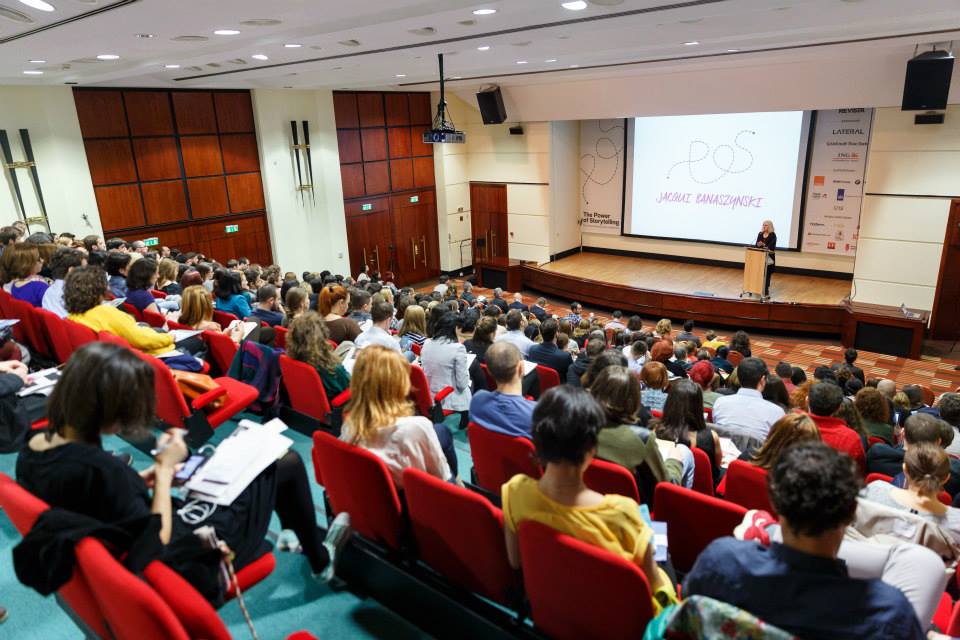Jacqui Banaszynski didn’t set out to become a storyteller. When she started working with newspapers, thirty years ago, she was far more interested in reporting than in writing. “Reporting gave me license to be curious, and to be constantly learning. Writing was the price I had to pay to let people know all this cool stuff that I had learned,” she said in her 2012 keynote.
She worked for small newspapers, where editors worried more about what she wrote than how she wrote it – did she have the right sources, did she get her facts straight? But in between county commission meetings and government sessions and crime briefs and stories about budgets, Jacqui tried to write the kinds of stories that she loved to read. Stories she found on the front page of the Wall Street Journal, magazine pieces from Esquire or Vanity Fair or Sports Illustrated, true versions of the fiction she could never put down as a child. She even spent a couple of years devouring everything Stephen King wrote, all of his horror stories, trying to figure out how he kept her turning the pages late at night.
In the thicket of newspaper’s traditional beats- sports, politics, taxes, labor, the environment -, she tried to find stories, not just articles. Instead of reporting about the dollars that divided workers and management in a big meatpackers’ strike, she would try to find a family in that strike that was divided, because the father worked on the kill floor and the daughter worked for the boss in the corporate office. Instead of chronicling the takedowns and the final score of an Olympic wrestling match, she tried to sit in the stands with the identical twin brother who sacrificed his own medal dreams so his brother could be out on the mat and win silver.
And during the AIDS crisis in America, besides filing report after report after report of transmission numbers, policy debates and questions about discrimination in jobs and housing against gay people, she also found two young men who were in love with the land and with each other, and she witnessed as that love ultimately resulted in their deaths. AIDS In The Heartland, published in the St. Paul Pioneer Press, was awarded the 1988 Pulitzer Prize in feature writing.
“But long before and long, long after that prize, the death do us part story of Dick Hanson and Bert Henningson rippled into the world and made a difference. Which is the other thing stories do, when done right: they make a difference.”
Here are more advice from Jacqui on writing stories that have an impact:
1. Believe in the value of what you do, whatever it is and if you can’t do what you really want to do for a living, find a way to make your paycheck pay the bills and do what you really care about the rest of your time, not to pretend and whine.
2. If you do any form of storytelling or communication for a living, whether you’re a documentary film maker or a songwriter or a communications expert at a company, or a journalist, your job is not just to go through life, notice things, maybe let life happen to you. Your job is to see the story and share the story, because the story is the reflection of the continuum that we are and that we live as human beings.
3. The three things I think that we need most as storytellers are creativity, courage and compassion:
- Creativity to stand somewhere new when you’re telling a story, to see it through fresh eyes, to find the way around the problem, to find a way to pitch the story and get it published, to ask a new question, to find a way to make a living. To find a new way to tell a story
- Courage. You know the kind of courage it takes to be in a war zone. The kind of courage it takes to stand up to corruption and power. But I also want to encourage you to have the courage to be bold enough to ask the tough question, the sensitive question, the painful question. That takes real courage.
- Compassion. You can’t be afraid to care. And too often we are afraid to care, and hide behind this false wall of objectivity and distance. You’ve got to care. If you don’t care about the people you write about, or the stories you do, why would anybody else?
4. So let those stories touch you. Dare to believe that your stories, well told, will touch others. They’ll start as a small plunk, a little tiny drop in an eternal ocean, a second in endless time, they will ripple out, they will reach forward, they will reach backwards, they will connect us with our history, they will reach forward to help us create hope. Maybe they will change our understanding of something, maybe they will show us a new view, maybe they will challenge us about what we thought was true, maybe they will open our minds, maybe they will touch our souls, maybe they will change our hearts.
Book your place to the 5th edition to hear more amazing stories from Jacqui.

